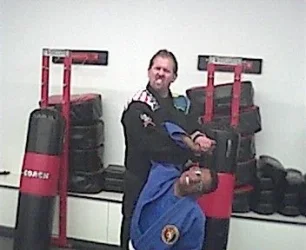H
Humble artist
Guest
I´ve recently become quite interested in this art,and had issues on my mind on it.I wonder if you could help me with these questions?
Thanks.
1.Is hapkido effective in your opinion/does it work?
Quite a classic line but I just wanted to hear what you think,what makes it unique?
2.Throws-Some of my research has given me the bizarre idea that hapki throws are somehow judo-oriented.I´ve got the idea that judo had an influence on it,for sure but this is something I don´t get (some material that I´ve seen includes some similar throws maybe) They come from aikijujutsu right?
I´ve checked trough some short interviews of high-ranking hapkido practitioners at www.martialinfo.com One of them states as a weak point that traditional throws of hapkido are not practical for protection,even though they look good.
What do you think about all this?
3.Do you have internal power development in it? As far as I know,there is for it is an internal art,mostly and breathing exercises and ki building is used?
If there is,could you compare it to what is used in kung-fu/wushu? Qi-gong,breathing exercises,oriental medicine study etc.
4.Are there revival&healing tactics at higher levels as in chinese arts and some korean arts?
5.Besides at Korea,is there high quality traditional hapkido teaching around? Where should one go at?
6.What kind of an approach does hapkido have for weapon defenses? Is it well-developed?
7.Does it have deep sense of philosophical and moral teaching? Seems to have.
Thank you for your time.
:asian:
Thanks.
1.Is hapkido effective in your opinion/does it work?
Quite a classic line but I just wanted to hear what you think,what makes it unique?
2.Throws-Some of my research has given me the bizarre idea that hapki throws are somehow judo-oriented.I´ve got the idea that judo had an influence on it,for sure but this is something I don´t get (some material that I´ve seen includes some similar throws maybe) They come from aikijujutsu right?
I´ve checked trough some short interviews of high-ranking hapkido practitioners at www.martialinfo.com One of them states as a weak point that traditional throws of hapkido are not practical for protection,even though they look good.
What do you think about all this?
3.Do you have internal power development in it? As far as I know,there is for it is an internal art,mostly and breathing exercises and ki building is used?
If there is,could you compare it to what is used in kung-fu/wushu? Qi-gong,breathing exercises,oriental medicine study etc.
4.Are there revival&healing tactics at higher levels as in chinese arts and some korean arts?
5.Besides at Korea,is there high quality traditional hapkido teaching around? Where should one go at?
6.What kind of an approach does hapkido have for weapon defenses? Is it well-developed?
7.Does it have deep sense of philosophical and moral teaching? Seems to have.
Thank you for your time.
:asian:

